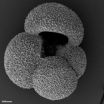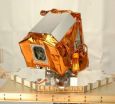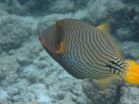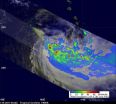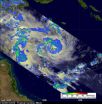(Press-News.org) The unusually cold weather this winter has been caused by a change in the winds.
Instead of the typical westerly winds warmed by Atlantic surface ocean currents, cold northerly Arctic winds are influencing much of Europe.
However, scientists have long suspected that far more severe and longer-lasting cold intervals have been caused by changes to the circulation of the warm Atlantic ocean currents themselves.
Now new research led by Cardiff University, with scientists in the UK and US, reveals that these ocean circulation changes may have been more dramatic than previously thought.
The findings, published today (14 January 2011) in the journal Science, show that as the last Ice Age came to an end (10,000 - 20,000 years ago) the formation of deep water in the North-East Atlantic repeatedly switched on and off. This caused the climate to warm and cool for centuries at a time.
The circulation of the world's ocean helps to regulate the global climate. One way it does this is through the transport of heat carried by vast ocean currents, which together form the 'Great ocean conveyor'. Key to this conveyor is the sinking of water in the North-East Atlantic, a process that causes warm tropical waters to flow northwards in order to replace the sinking water. Europe is kept warmer by this circulation, so that a strong reduction in the rate at which deep water forms can cause widespread cooling of up to 10 degrees Celsius.
Lead author Dr David Thornalley, Cardiff School of Earth and Ocean Sciences, explains how the scientists studied changes in ocean circulation: "We retrieved ocean sediment cores from the seafloor of the Northeast Atlantic which contained the shells of small organisms. We used these shells to examine the past distribution of radiocarbon in the ocean. Radiocarbon is a radioactive form of carbon that acts like a natural stopwatch, timing how long it has been since water was last at the sea surface. This allows us to determine how quickly deep water was forming in the Northeast Atlantic at different times in the past."
The team of scientists found that each time deep water formation switched off, the Northeast Atlantic did not fill with water that sank locally. Instead it became inundated with water that had originally formed near Antarctica and then spread rapidly northwards. The new results suggest that the Atlantic ocean is capable of radical changes in how it circulates on timescales as short as a few decades.
Dr Thornalley said: "These insights highlight just how dynamic and sensitive ocean circulation can be. Whilst the circulation of the modern ocean is probably much more stable than it was at the end of the last Ice Age, and therefore much less likely to undergo such dramatic changes, it is important that we keep developing our understanding of the climate system and how it responds when given a push."
INFORMATION:
The research is funded through the Natural Environment Research Council's Rapid Climate Change programme and the National Science Foundation (USA). The Science paper The Deglacial Evolution of North Atlantic Deep Convection and the paper can be read online at: http://www.sciencemag.org/journals
Notes to editors
1.Cardiff University is recognised in independent government assessments as one of Britain's leading teaching and research universities and is a member of the Russell Group of the UK's most research intensive universities. Among its academic staff are two Nobel Laureates, including the winner of the 2007 Nobel Prize for Medicine, University President Professor Sir Martin Evans.
Founded by Royal Charter in 1883, today the University combines impressive modern facilities and a dynamic approach to teaching and research. The University's breadth of expertise in research and research-led teaching encompasses: the humanities; the natural, physical, health, life and social sciences; engineering and technology; preparation for a wide range of professions; and a longstanding commitment to lifelong learning. Three major new Research Institutes, offering radical new approaches to neurosciences and mental health, cancer stem cells and sustainable places were announced by the University in 2010. www.cardiff.ac.uk
2. The Natural Environment Research Council is the UK's main body for funding and managing world-class research, training and knowledge exchange in the environmental sciences. It coordinates some of the world's most exciting research projects, tackling major issues such as climate change, environmental influences on human health, the genetic make-up of life on earth, and much more. NERC receives around £400m a year from the government's science budget, which it uses to fund independent research and training in universities and its own research centres.
Dramatic ocean circulation changes revealed
2011-01-15
ELSE PRESS RELEASES FROM THIS DATE:
Interactive window shopping
2011-01-15
A woman passing by the window display is captivated and asks her companion "Isn't the leather bag chic?" "Which one do you mean? There are so many of them." The woman points to one of the bags and as if by magic the luxurious purse appears on a display behind the shop window. Then she points to a button and the designer object rotates on the screen. "So that's what it looks like from the back." The woman passing by is impressed. She makes another gesture to zoom the bag towards her letting her to see every detail.
This particular shopping experience is courtesy of new ...
Measles virus plays role in Paget's disease of bone, Pitt-led team says
2011-01-15
PITTSBURGH, Jan. 14 – A gene from the measles virus plays a key role in the development of Paget's disease of bone, according to a team of researchers led by the University of Pittsburgh School of Medicine. Their findings, recently published in Cell Metabolism, confirm a long-held speculation that the childhood infection is an environmental trigger for the disease and reveal how the viral gene contributes to the development of its characteristic bone lesions.
"Our earlier work showed that bone cells called osteoclasts in about 70 percent of these patients contain a certain ...
Learning while driving
2011-01-15
The days are long gone when all you needed to be a truck driver was a heavy goods vehicle license and the ability to read a map. Nowadays it is a skilled occupation which requires lots of qualifications. Modern truck drivers have to operate electronic devices, adapt their routes expertly to the given traffic and loading situation, know how to drive fuel-efficiently, be up to date with statutory regulations and monitor the safety of their load. Then there is all the complex legislation introduced at EU level. What's more, drivers who make trips to other countries also need ...
Enhanced early childhood education pays long-term dividends in better health
2011-01-15
January 14, 2011 -- Intensive early education programs for low-income children have been shown to yield numerous educational benefits, but few studies have looked more broadly at their impact on health and health behaviors. A new study conducted by researchers at Columbia University's Mailman School of Public Health examines this issue, using data from a the well-known Carolina Abecedarian Project (ABC), a randomized control study that enrolled 111 infants in the 1970s and continued to follow them through age 21. Researchers found that individuals who had received the ...
Improved measurements of sun to advance understanding of climate change
2011-01-15
WASHINGTON—Scientists have taken a major step toward accurately determining the amount of energy that the sun provides to Earth, and how variations in that energy may contribute to climate change.
In a new study of laboratory and satellite data, researchers report a lower value of that energy, known as total solar irradiance, than previously measured and demonstrate that the satellite instrument that made the measurement—which has a new optical design and was calibrated in a new way—has significantly improved the accuracy and consistency of such measurements.
The new ...
Researchers discover way to halt lung inflammation in animal models
2011-01-15
AURORA, Colo. (Jan. 14, 2011) - Acute inflammation of the lung is a poorly recognized human disease that develops in surprising and unexpected ways. The acute lung injury (ALI) or adult respiratory distress syndrome (ARDS) is a vital new concern for soldiers, but it can develop in anyone during a systemic infection, after severe trauma, as a result of bone fracture, following severe burns and in many other ways as well-- the initial cause may have nothing apparent to do with the lung itself. However, an answer to halting lung inflammation may have been discovered, thanks ...
Study finds fisheries management makes coral reefs grow faster
2011-01-15
An 18-year study of Kenya's coral reefs by the Wildlife Conservation Society and the University of California at Santa Cruz has found that overfished reef systems have more sea urchins—organisms that in turn eat coral algae that build tropical reef systems.
By contrast, reef systems closed to fishing have fewer sea urchins—the result of predatory fish keeping urchins under control—and higher coral growth rates and more structure.
The paper appears in the December 2010 issue of the scientific journal Ecology. The authors include Jennifer O'Leary of the University of ...
NASA's Aqua sees Tropical Storm Vince about to U-turn away from Australia
2011-01-15
Building high pressure is expected to make Tropical Storm Vince do a U-turn in the Southern Indian Ocean and take a westward track away from Western Australia. Two instruments on NASA's Aqua satellite looked at Vince's clouds this morning before Vince's forecast U-turn.
From its vantage point in space, Aqua passed over Tropical Storm Vince on January 14 at 06:20 UTC (1:20 a.m. EST/2:20 p.m. Australia/Perth time) and the Moderate Resolution Spectroradiometer (MODIS) instrument captured a visible image that showed the bulk of Vince's thunderstorms southwest of the storm's ...
NASA satellite: Tropical Storm Vania brought heavy rains to southeastern New Caledonia
2011-01-15
Tropical Storm Vania moved through southeastern New Caledonia on January 14 and NASA's TRMM satellite noticed heavy rainfall occurring. Residents of Norfolk Island are now expected to receive gusty winds and rainfall as Vania continues to move south in the South Pacific Ocean.
New Caledonia is located in the southwest Pacific and is made up of a main island called Grande Terre, the Loyalty Islands and several smaller islands.
At 0422 UTC (3:22 p.m. Pacific/Noumea local time) on January 14, the Tropical Rainfall Measuring Mission (TRMM) satellite, managed by NASA and ...
NASA's TRMM Satellite sees Zelia born of System 94P
2011-01-15
The low pressure area known as System 94P on January 13 strengthened into the seventh tropical cyclone of the South Pacific Cyclone season, today becoming Tropical Storm Zelia. NASA's TRMM satellite found heavy rainfall was already occurring in the storm as it was turning away from New Zealand and heading toward New Caledonia.
New Caledonia just dealt with Tropical Storm Vince today, and is expecting to feel winds and rains from Tropical Storm Zelia as it passes to the southwest of the island group this weekend.
The Tropical Rainfall Measuring Mission (TRMM) satellite, ...
